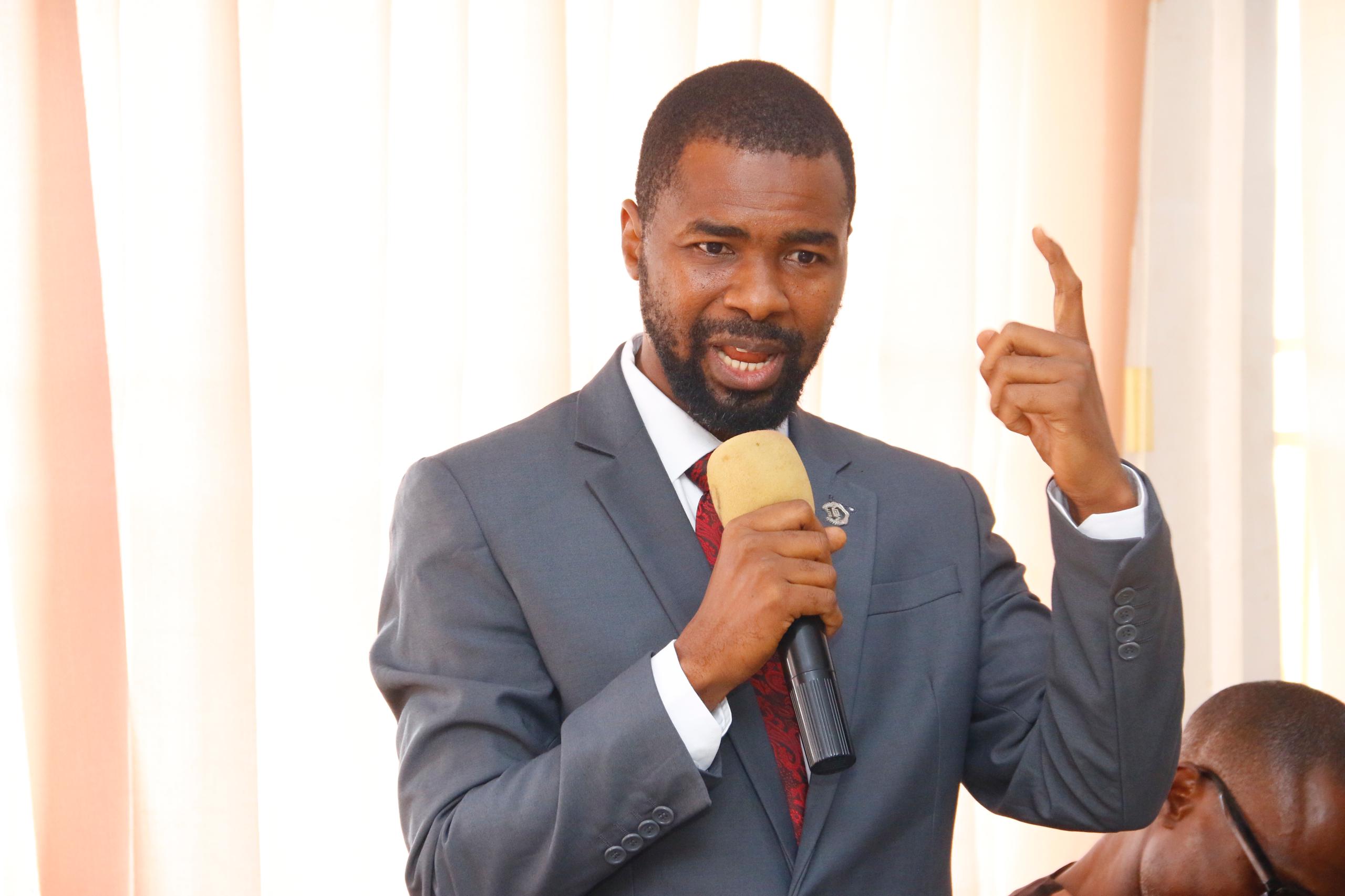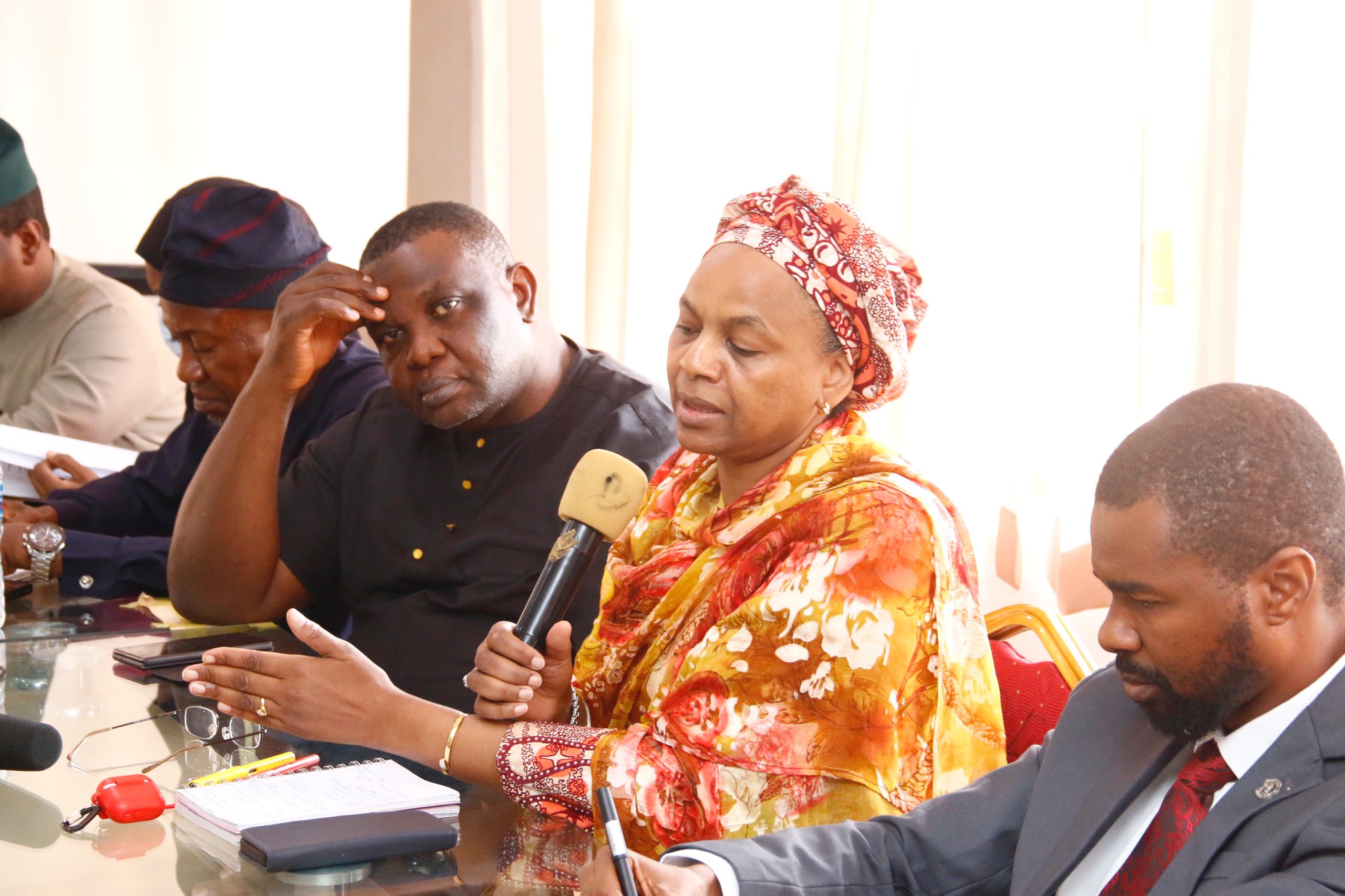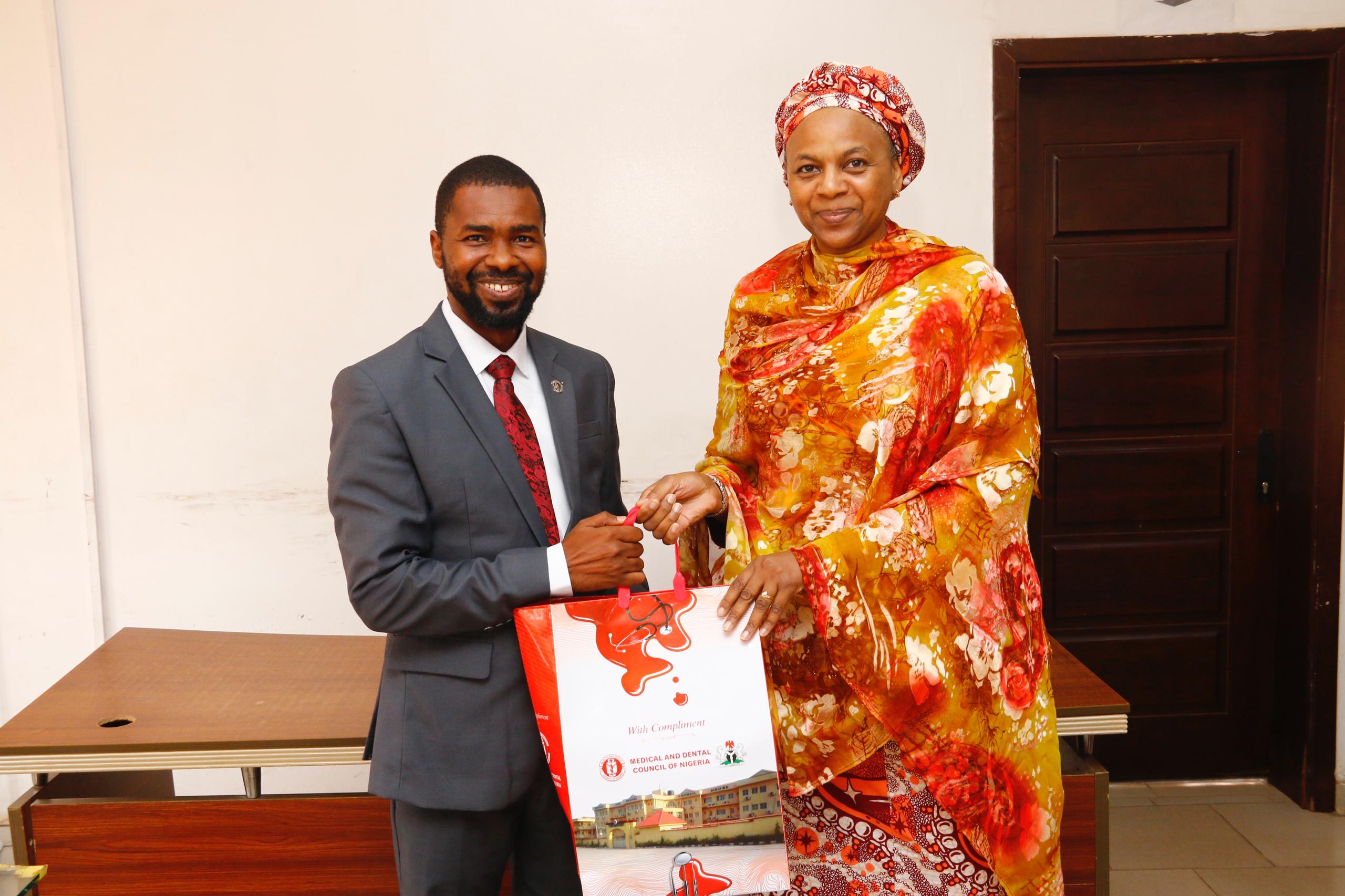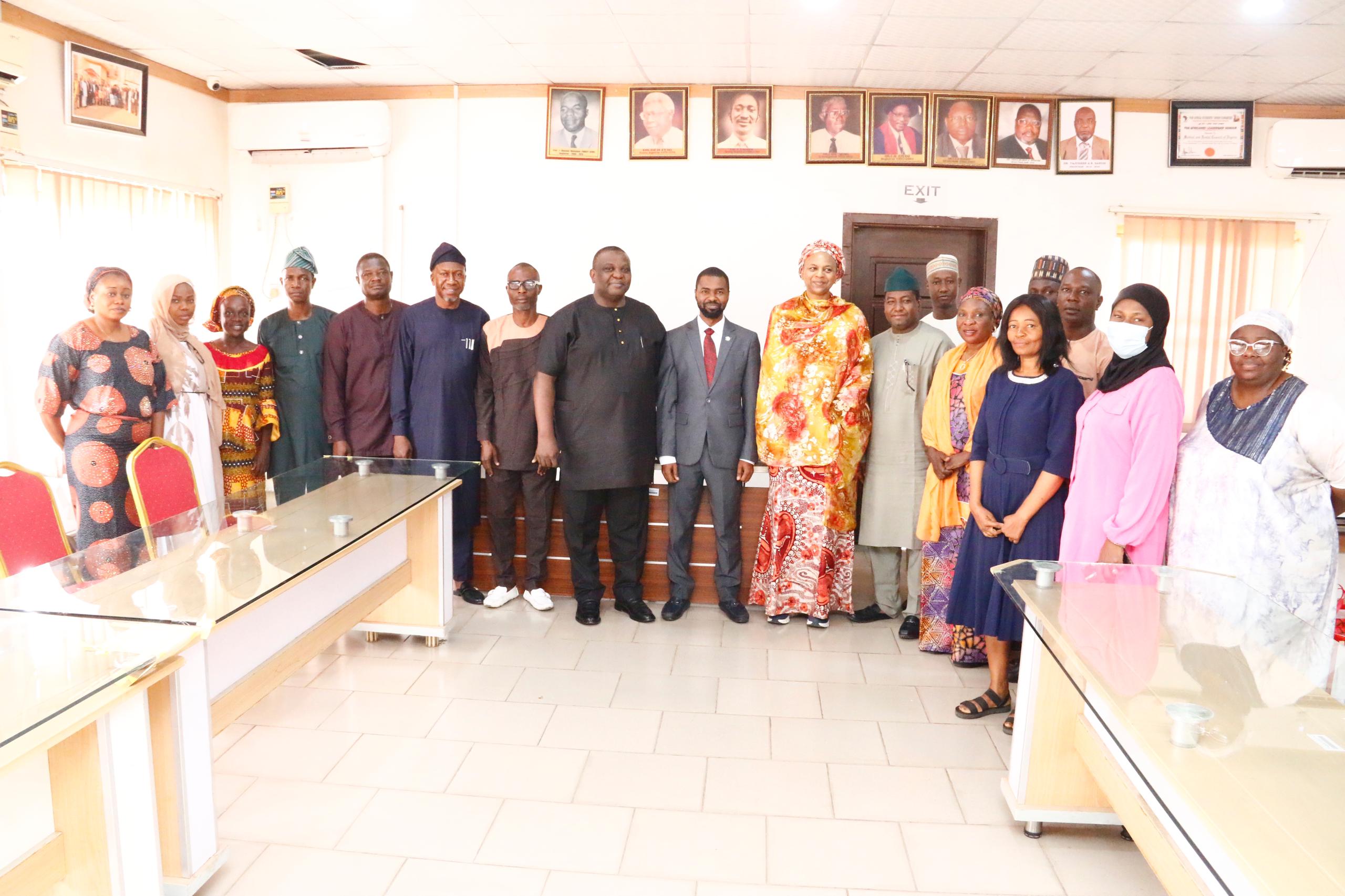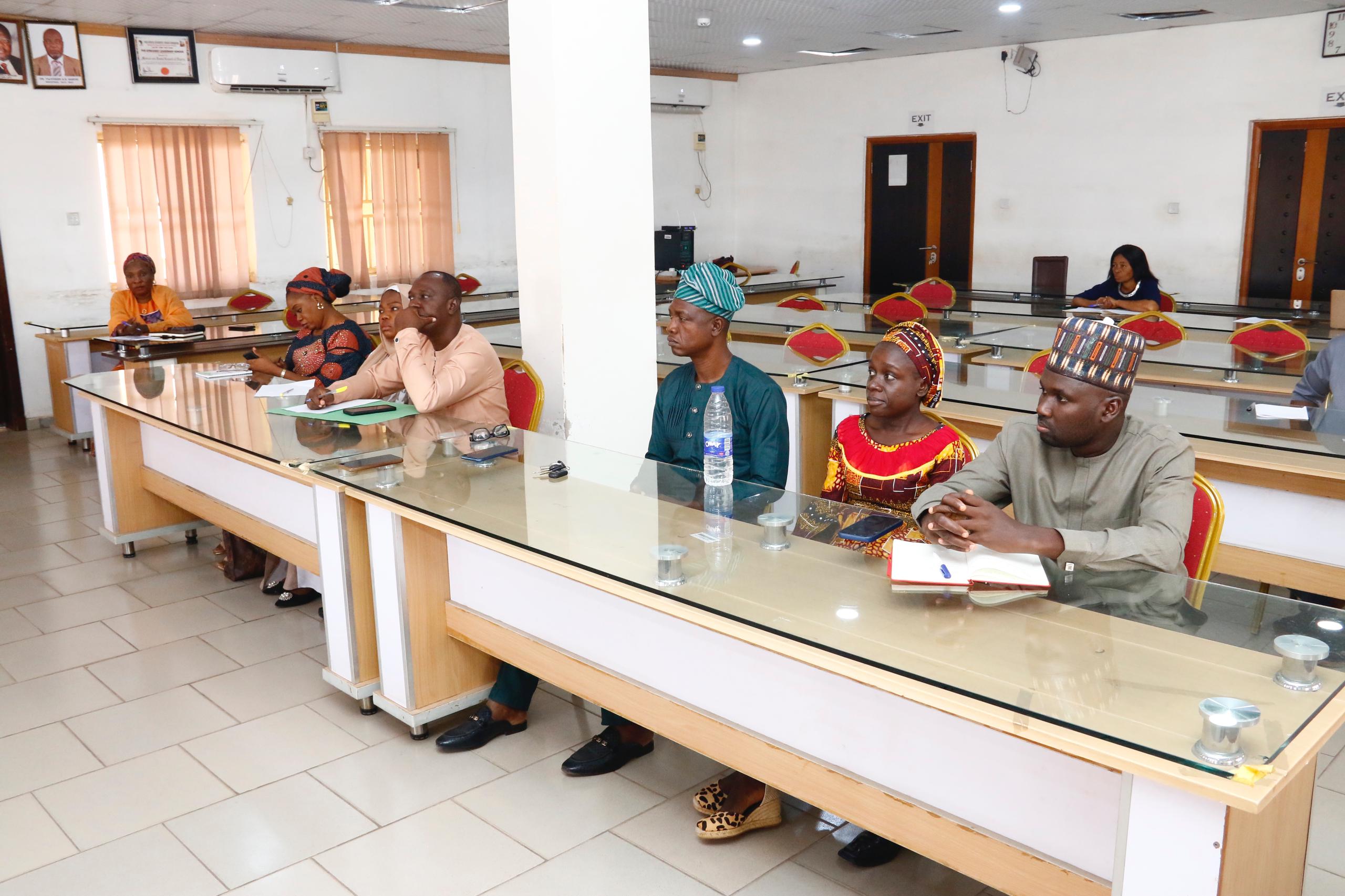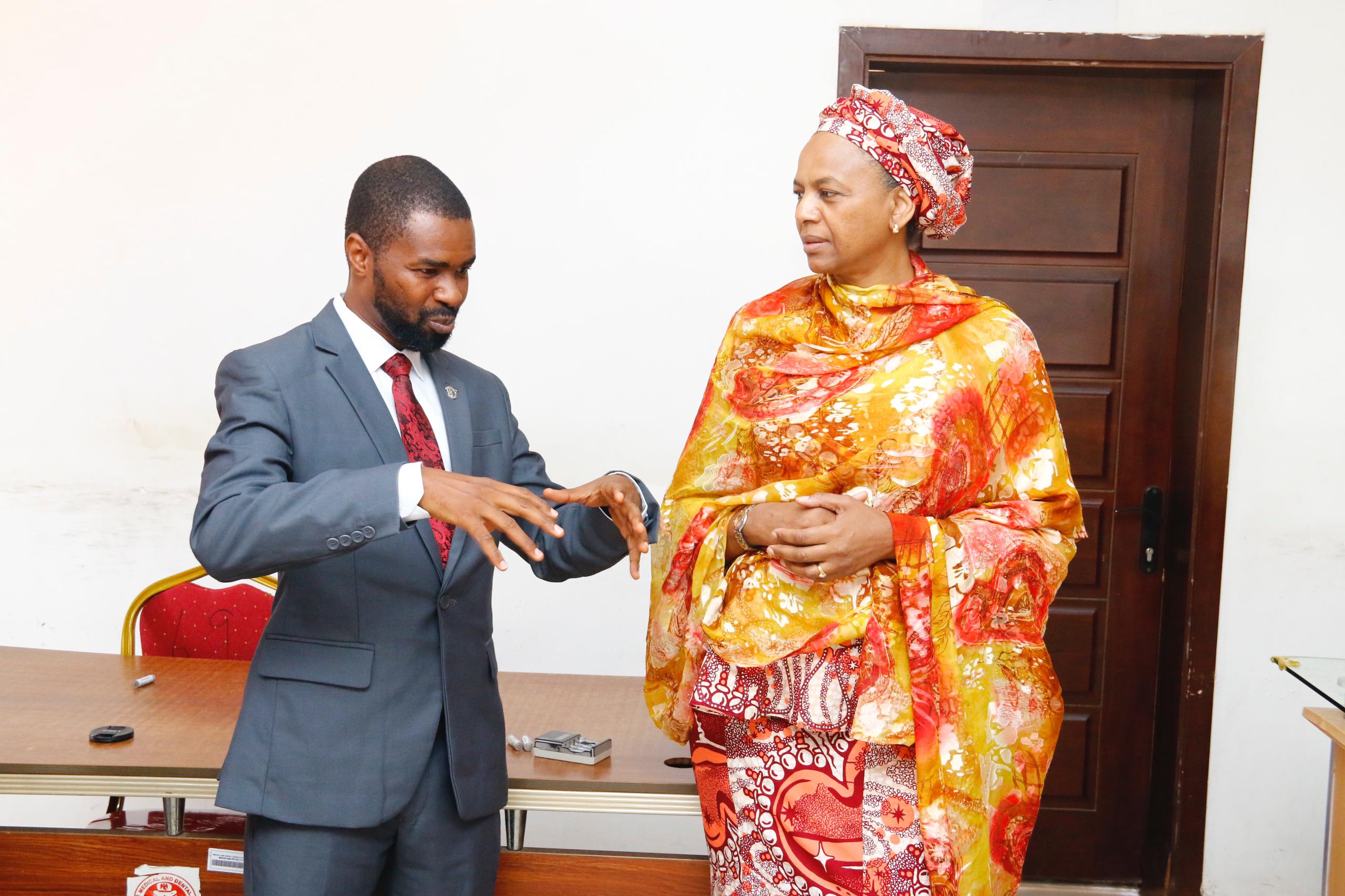Nigeria Embarks on Major Medical Rehabilitation Reform with Backing from Minister, WHO
30.05.2025 11:46:13 | Tunde Jimoh
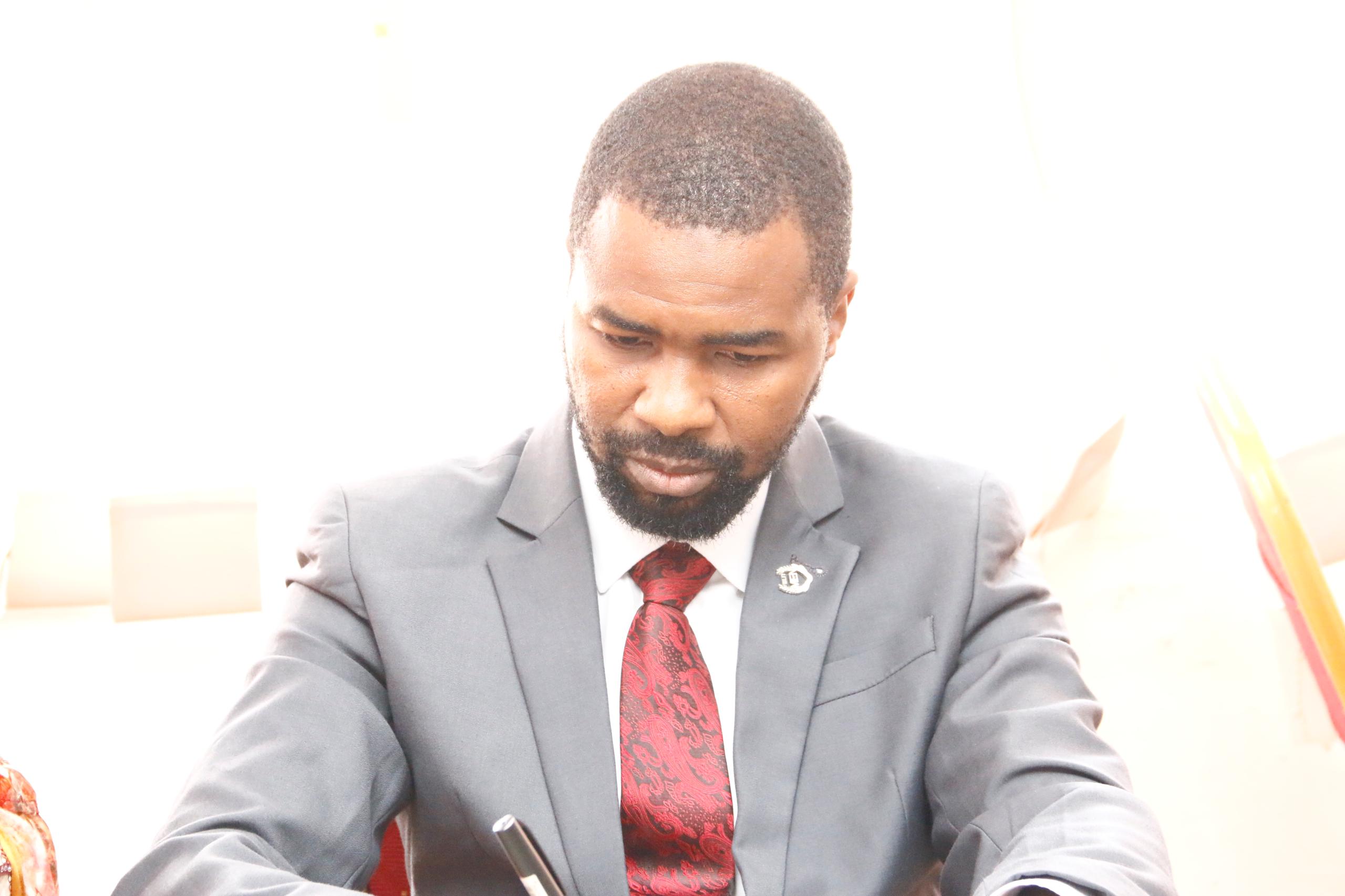
The Federal Government of Nigeria has taken a significant step towards transforming its health system by integrating medical rehabilitation into primary healthcare, following key interventions from the Ministry of Health and Social Welfare and international partners.
The Registrar, Medical Rehabilitation Therapists Registration Board of Nigeria (MRTB), Prof. Rufai Yusuf Ahmad during a courtesy visit to the Registrar of Medical and Dental Council of Nigeria (MDCN), Prof. Fatima Kyari today in Abuja, sought for the support and cooperation of MDCN for the WHO Rehabilitation 2030 Initiative.
Rufai revealed that the Minister of Health had approved a series of submissions aimed at strengthening rehabilitation services nationwide.
This he said include the formation of a Rehabilitation Technical Working Group, the integration of rehabilitation into primary healthcare, and the institutionalisation of a minimum rehabilitation package at primary health centres.
One of the central issues raised during the meeting was Nigeria's lag in prioritising rehabilitation services.
“Countries do not prioritise rehabilitation, and even those that do often neglect it across the six building blocks of the health system.
“Nigeria lacks dedicated rehabilitation officers at both the federal and state levels, there is no national policy or strategic plan for rehabilitation, and services are limited to secondary and tertiary healthcare," he said.
The current system, he noted, failed to offer community-level or primary healthcare-based rehabilitation, with a glaring shortage of specialised units.
According to him, the workforce remains alarmingly thin, with fewer than 8,000 registered physiotherapists and less than 500 professionals in each of the other key rehabilitation disciplines such as Occupational Therapy, Speech Therapy, Audiology and Prosthetics and Orthotics.
To address these gaps, he said Nigeria would begin implementing the WHO’s Rehabilitation in Health Systems: Guide for Action, which structures reform into four key phases: situation assessment, policy and strategy development, monitoring and evaluation, and full implementation.
The WHO has assigned a technical officer to support the process, and preparations are underway to conduct a nationwide situation analysis using WHO’s TRIC (Template for Rehabilitation Information Collection) and ATAC (Assistive Technology Assessment Checklist) tools.
“We are committed to starting with a solid situation analysis, but we delayed initially because we wanted to ensure inclusive partnerships,” he said, calling for collaboration with the National Medical Council and other institutions.
The meeting also addressed the critical lack of financing for rehabilitation. While occasional allocations exist, there is no dedicated budget line. The departure of humanitarian partners like the International Committee of the Red Cross (ICRC), who previously supplied assistive devices, has further exposed the fragility of the sector.
The Registrar of the Medical and Dental Council of Nigeria (MDCN), Prof. Fatima Kyari, welcomed the initiative, applauding its structured approach and pledging support.
“Rehabilitation is an integral part of patient care.
“We will ensure that our medical code reflects this and promotes appropriate referrals for patients in need of rehabilitation.”
She further added that the Council is reviewing its standards to support healthcare professionals who may develop disabilities during their careers, ensuring they receive the rehabilitation they need to continue contributing to the health sector.
The dialogue also highlighted new regulatory reforms being implemented by the Medical Rehabilitation Board, including digital registration, professional exams, and indexing of practitioners, though the board is currently facing challenges due to the novelty of these systems.
Both parties reaffirmed their commitment to achieving universal health coverage that fully integrates rehabilitation services by 2030.
